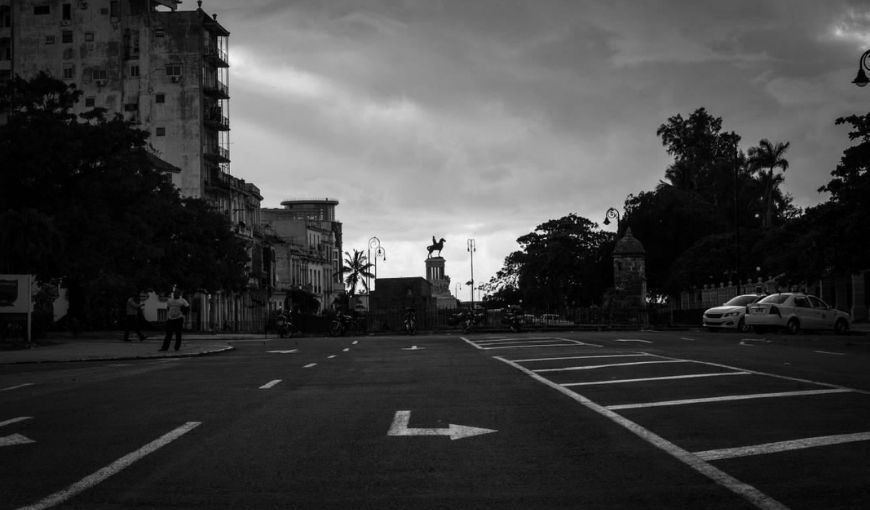Cuban professor and researcher, Julio Cesar Guanche, gives us thirteen points he thinks we need to be talking about here in Cuba.
1. There is a lot of criticism about “polarization” among Cubans. This doesn’t stem from any kind of national characteristic, like “Cubans always say that you are completely wrong.” It is rather the result of inequalities in political access. Polarization favors those who have more power to control voices. Democratic culture is concerned with inaudible voices and power distribution. Cuban politics today suffers great inequality among its players.
2. The 1959 victory made an impression because it made the dream of equality and social justice viable, which was a firm standard in Cuban political culture, both among supporters and critics of this model. The 1990s marked a before and after, a borderline when it comes to this ideal and its realization, probably to the same extent 1959 was for its own past.
3. It’s perfectly plausible that we are currently witnessing the birth of another borderline, during a time of a new crisis of equality and social justice values. If this is the case, the idea that every act of opposition to the Cuban political system seeks “to restore” capitalism” and a return to the “neocolonial republic”, overlooks the fact that there are problems, disappointment, gaps and legitimate arguments about the Revolution’s own course, with everything it has done, its debts and failures. Cuba’s race issue is a clear example of this.
4. Moralizing politics entrenches contenders. There are plenty of moral superiority strategies over others: whether this is against “mercenaries”, or against “Communists”, or against “anti-Cubans” or against those “who don’t denounce the dictatorship.” This moralizing culture is a strong deterrent for pluralism. Conceiving “others” as “immoral” beings is the way to exclude them and, if taken to the extreme, the way to annihilate them.
5. State repression of social unrest, and the naturalization of US meddling in Cuba, are illegitimate. They aren’t moral courses of action.
6. Law infringements and the State’s arbitrary actions do not only have direct victims, they also affect the whole of a political system that purports to be democratic, and the high ethics which should sustain it.
7. Rights aren’t for revolutionaries, be that in public spaces or in the health system. Citizens and people have rights. These rights should never be conditioned for any reason.
8. US meddling in Cuba, and its blockade, also have individual and group victims. It is arbitrary interference in a sovereign country. It can only be justified with arguments that fall outside the democratic circle.
9. Certain party-line strategies seems to concentrate more on justifying exclusion, rather than inclusion. This aspiration has even been linked to Jose Marti, claiming he would have said that “everyone” didn’t really mean everyone. Reactionary ideas about the “enemy” are also now being touted as revolutionary.
10. The enemy exists in politics, in the social, political and cultural battlefield. However, the “enemy’s” language is pre-political, uncivil, just like it is in “the war against drugs” in Mexico. It turns conflict into a threat, and being different into an offense. It ensures that those in power are able to define who the enemy is, and then push them out of political society and decivilize society.
11. The State has a duty not only to those who obey their orders, but also to the entire community of citizens. The collective construction of order is a right. Defense of this collective order is a duty. Constitutional order is a must for all. The principle of equality within the law isn’t about “some people being more equal than others”, or for someone to appropriate and selectively apply the law so it suits them. Constitutional order is a whole package, yes, but it goes hand-in-hand with everyone’s rights and duties.
12. Certain opposition approaches seem to believe that the country exists in their image and likeness. That the “it’s over” (from the latest hit), isn’t a prophecy, but an epitaph. Their calls to “oust the dictatorship” ignore the fact that this would also mean burying, to some extent, the same people they promise to liberate. They misunderstand the foundations of the Cuban State, which they believe is only standing because of repression. They demand that any criticism of the current situation in Cuba be done in their own words, rhythm and syntaxis, at the risk of being a “coward”, or “accomplice of the dictatorship”. Their mission to “bring down the dictatorship” doesn’t even outline possible scenarios, and they actively seek a battleground, with chaos and blood, which aren’t the invention of the Cuban government’s TV news.
13. I remember that Cuban revolutions’ greatest promise was to bring about democracy and popular integration of the entire nation. This was always expressed in a language of inclusivity. Bread and freedom, they are either saved together, or condemned together, Jose Marti once said.
——
* This article was originally published on La Cosa and has been reprinted with the author, Julio Cesar Guanche’s authorization. It was translated into English from the original in Spanish.


If you believe that our journalism is important for Cuba and its people, we want you to know that this is a critical moment.
Behind each publication there is a team that strives to ensure that our products meet high quality standards and adhere to professional and ethical values.
However, to keep a close watch over government, demand transparency, investigate, analyze the problems of our society and make visible the hidden issues on the public agenda is an effort that requires resources.
You can contribute to our mission and that is why today we ask for your help. Select the way you prefer to send us a donation.









comments
We moderate comments on this site. If you want to know more details, read our Privacy Policy
Your email address will not be published. Mandatory fields are marked with *